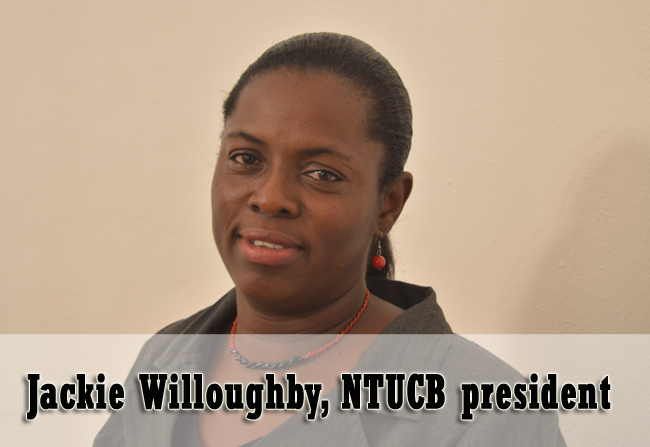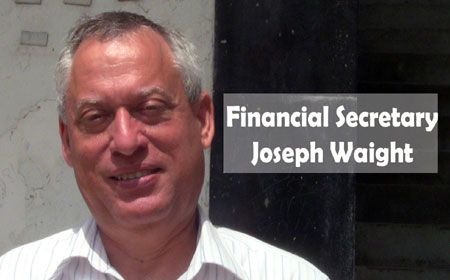Austerity ahead: tax increase not necessary; belt-tightening has to be across-the-board, NTUCB contends
BELIZE CITY, Fri. Feb. 10, 2017–Amid fears of an impending tax hike, Financial Secretary Joseph Waight told the press on Friday evening that “…at this point in time, it is inevitable that there will be increases in some taxes.” Waight declined to elaborate, but as we told you on Thursday, Minister of State in the Ministry of Finance, Dr. Carla Barnett, told our newspaper that a final decision will be taken after internal consultations with Government departments and ministries, as well as external consultations with social partners which began this week.
Yesterday, officials of the Ministry of Finance met with the private sector, telling them that the Belizean economy is “imperiled,” and today, the officials, including the Financial Secretary, met with the trade unions under the umbrella of the National Trade Union Congress of Belize (NTUCB). NTUCB president, Jackie Willoughby, told us after the meeting that while they agree on the need for Government to raise revenue, they do not totally agree that it has to be done through a tax hike.
Willoughby said that the NTUCB was told today that a tax increase is something that is being looked at but it is not something that has actually been decided. When and if Government decides to go the way of a tax hike, the unions will know, she added.
Meanwhile, she confirmed to us that the third tier of salary increase for teachers and public officers, deferred in 2016 due to Hurricane Earl, is to be paid in the upcoming budget year; meanwhile, though, there have been calls for belt-tightening in the public sector, as they are being asked to scale back their budgets by 5% for the new 2017-2018 fiscal year.
“In some ways, we can do that; but like I said, I don’t have a problem to be on board; I will have a problem if only we are onboard and so we made it clear that the austerity measures—the belt-tightening—has to be something across-the-board, so it has to be from top to bottom. There can’t be wastage, one person in a vehicle or vehicles going across to Chetumal [that carry] blue [license] plates and that kind of thing,” Willoughby stressed.

In meeting Finance officials today, the NTUCB raised concerns about the gas/fuel bill, exorbitant rent payments, and generous tax exemptions that can be observed at the higher levels of public administration. They also talked about streamlining contract officers, similar to suggestions made by the private sector, which called for a scaling back of contract officers as a part of measures to contain the wage bill.
The private sector is adamant that especially amid the ongoing recession, they cannot afford further tax increases, and they have suggested that the Government looks at raising further revenue from the tourist sector via fees that would go directly to Central Government to help bridge the nearly $200 million deficit in the national budget, which in this preliminary phase estimates $1.2 billion in spending for the next budget year.
The unions and the private sector had not jointly discussed the proposal, and Willoughby spoke of the need for all the parties to return to a tripartite dialogue, which she believes would achieve more success.
Willoughby commented that: “…we would like to get back to the issue of the tripartite conversation, rather than have labor come one day, business come the next day, because I don’t think… it achieves much if you have singular conversations.”
We asked Willoughby whether she got the sense that people were avoiding discussion on “the big elephant in the room”—the chain of events which have been straining both government finances and the national economy.
“I don’t think they have the opportunity to not talk about it, because if you are going to be cutting and raising taxes—if in fact you will be raising taxes—then certainly, you would have to examine all of that. I mean, any sensible citizen would want to ask the question, ‘If you’re going to bill me over here, what’s wasting over here, if anything is wasting?’”
Willoughby also said: “…we have to look at how we diversify agriculture, how we put in policies for procurement, how we do better tax enforcement rather than just introducing new tax laws. How do we enforce what we have? How [do] we bring the informal sector into the formal sector? How [do] we increase our exports [and] stop bringing [in] things that we already have here.”
She additionally spoke of the need for more subsistence farming as one of the measures to ease economic pressures.

